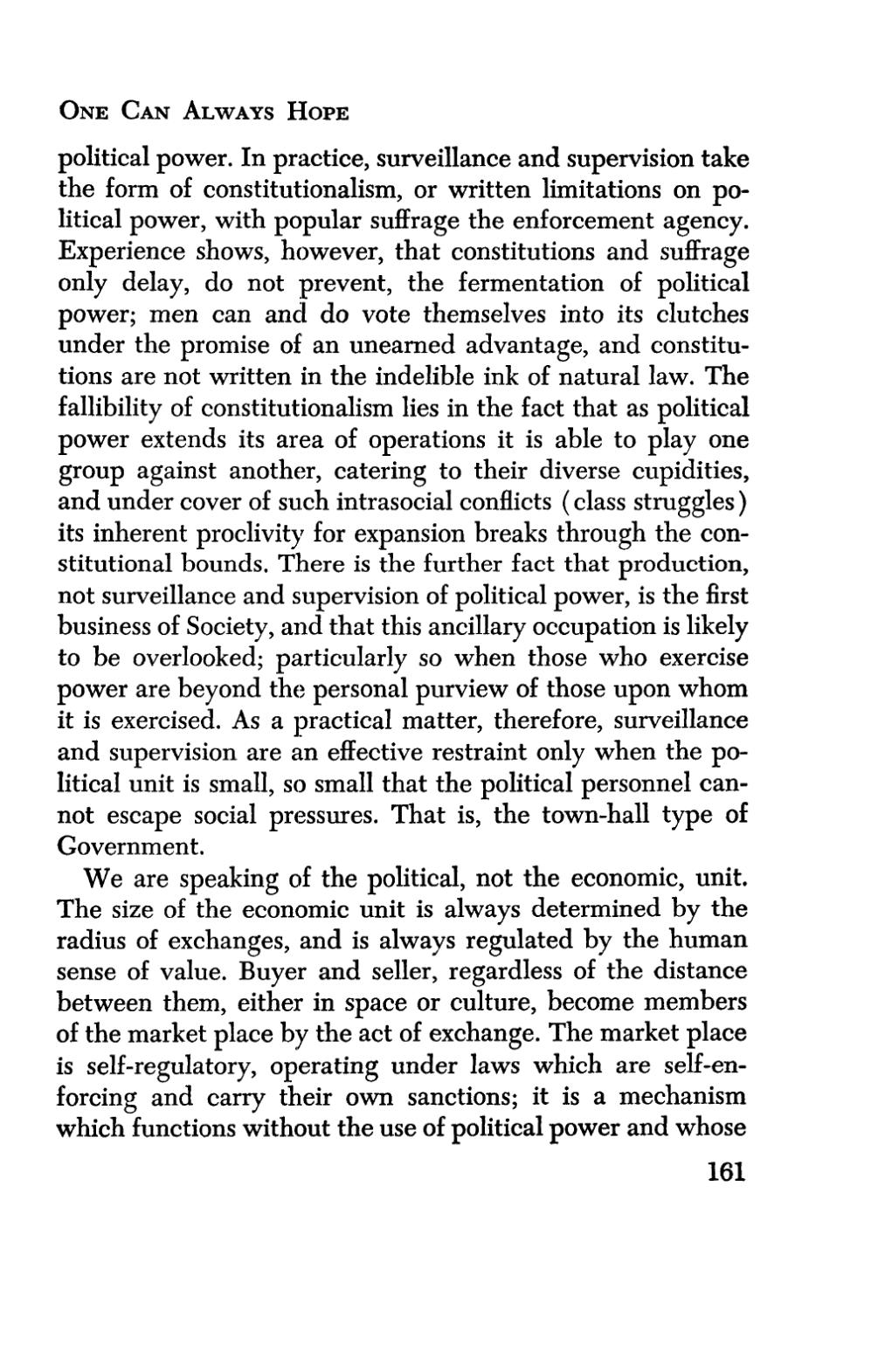One Can Always Hope
political power. In practice, surveillance and supervision take the form of constitutionalism, or written limitations on political power, with popular suffrage the enforcement agency. Experience shows, however, that constitutions and suffrage only delay, do not prevent, the fermentation of political power; men can and do vote themselves into its clutches under the promise of an unearned advantage, and constitutions are not written in the indelible ink of natural law. The fallibility of constitutionalism lies in the fact that as political power extends its area of operations it is able to play one group against another, catering to their diverse cupidities, and under cover of such intrasocial conflicts (class struggles) its inherent proclivity for expansion breaks through the constitutional bounds. There is the further fact that production, not surveillance and supervision of political power, is the first business of Society, and that this ancillary occupation is likely to be overlooked; particularly so when those who exercise power are beyond the personal purview of those upon whom it is exercised. As a practical matter, therefore, surveillance and supervision are an effective restraint only when the political unit is small, so small that the political personnel cannot escape social pressures. That is, the town-hall type of Government.
We are speaking of the political, not the economic, unit. The size of the economic unit is always determined by the radius of exchanges, and is always regulated by the human sense of value. Buyer and seller, regardless of the distance between them, either in space or culture, become members of the market place by the act of exchange. The market place is self-regulatory, operating under laws which are self-enforcing and carry their own sanctions; it is a mechanism which functions without the use of political power and whose
